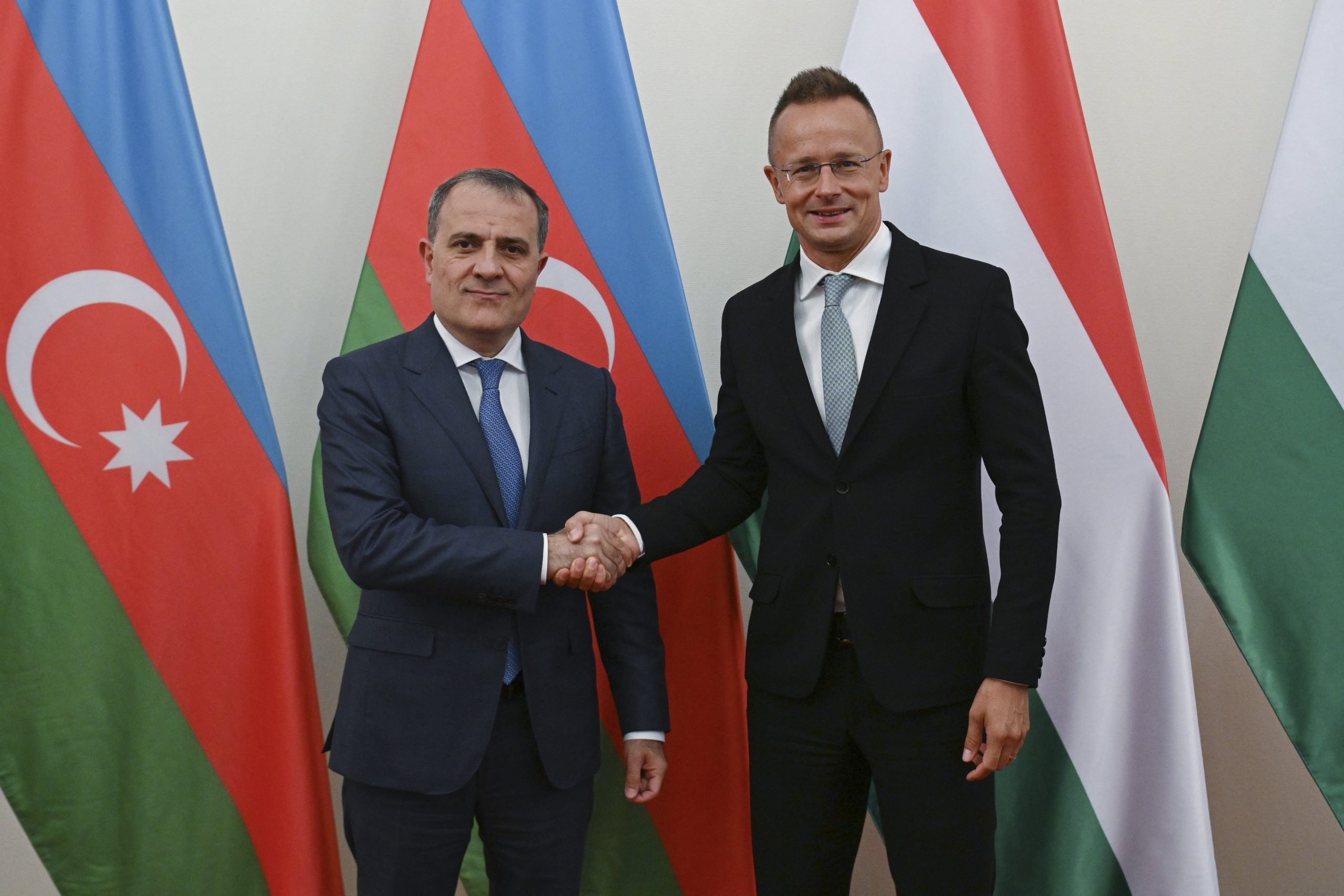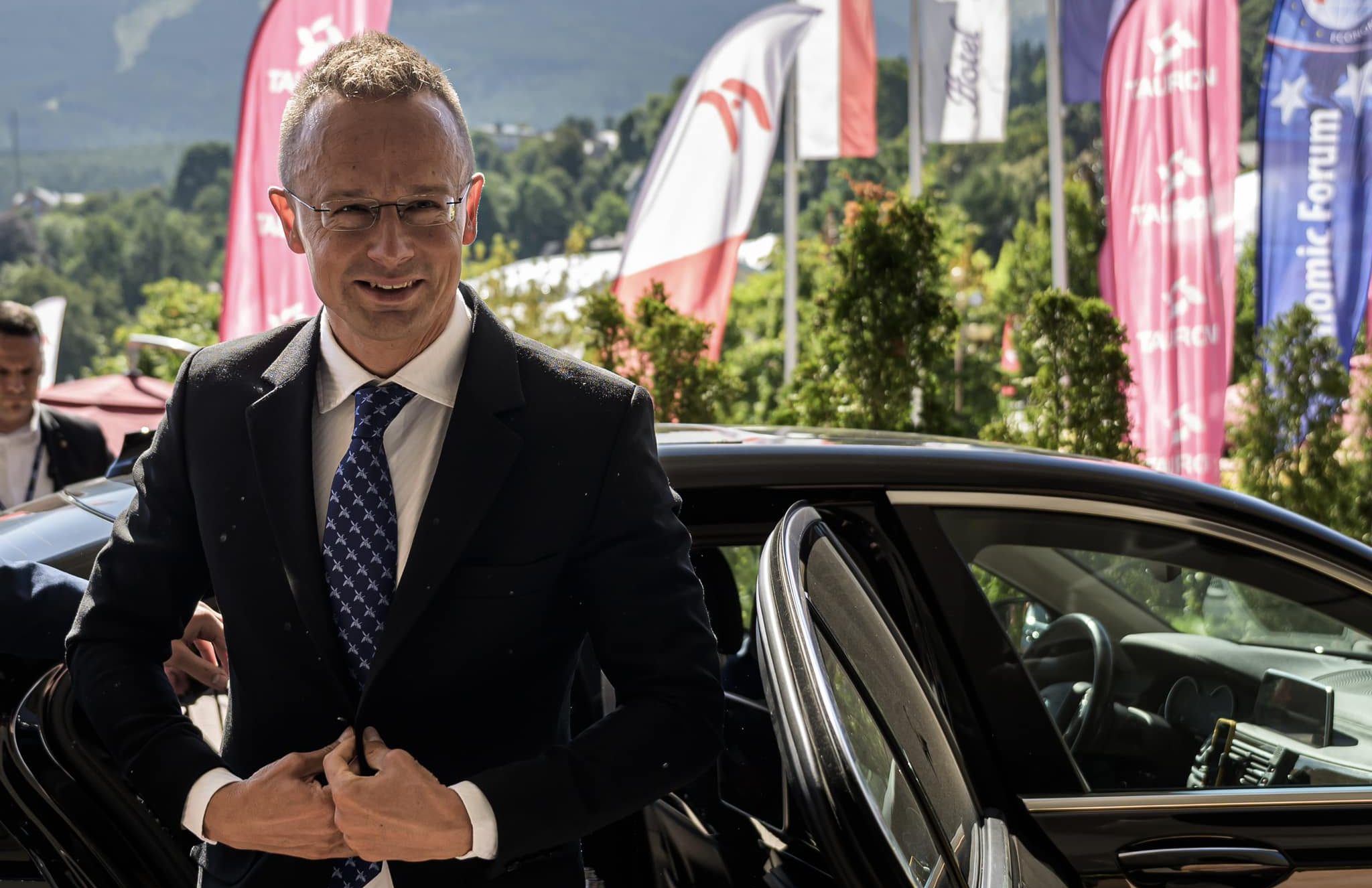
Hungary benefits greatly in terms of security of energy supply from closer cooperation with Azerbaijan.Continue reading

“It is unfair to accuse Hungary of being Russian-friendly – no one can educate our country about history and freedom. The Hungarians know exactly what it is like to live under oppression, unlike those who have not experienced it,” Minister of Foreign Affairs and Trade Péter Szijjártó said in Karpacz, Poland, on Wednesday.
At a discussion on the future of Visegrád cooperation at the Karpacz Economic Forum, the minister criticized the fact that some people accuse Hungary of being pro-Russian and pro-Putin, and said that perception does not always equal reality. He argued that Hungary had to fight for freedom while no one helped in 1956, despite Radio Free Europe announcing that American support was coming. Those who are trying to lecture Hungary today about history, freedom, and the oppression of the Soviet Union and the communists are those who did not experience it, he pointed out.
Péter Szijjártó said that it was unfair to accuse Hungary of being friendly towards Russia, because the physical reality and the existing infrastructure determines energy supply, and the European Union does nothing to develop alternative transport routes.
If we exclude Russian gas, what will happen tomorrow? Who will explain to the Hungarians that there is no heating?”
The foreign minister pointed out that the government was working to bring in new sources of gas, but that the energy infrastructure in southeastern Europe was not up to the job and the European Union did not want to finance the development. Meanwhile, 85% of oil consumption is supplied by Russian energy carriers, and on the only alternative route, the Adriatic pipeline, the Croatian authorities have raised the transit fee to five times the average, with no one in Europe protesting against this, he claimed.
Szijjártó stressed that
the Visegrád countries (Czechia, Hungary, Poland, and Slovakia) remain the focus of Hungary’s foreign policy strategy, because in the midst of difficulties, the Central European states can be more effective if they join forces than if they go their separate ways.
He noted that in recent years, Visegrád cooperation has achieved results that have served the interests not only of the participating parties, but of Europe as a whole. Among the successes, the minister mentioned that Czech, Polish, and Hungarian armies are protecting Slovak airspace, and the three partner countries are protecting Hungary’s borders at a time of great migratory pressure. In addition, the fact that enlargement is on the EU agenda at all is a huge achievement, as the Visegrád countries are united in their support for the Western Balkans, unlike many Western European leaders who only take this position in public, Szijjártó asserted.
The minister emphasized that
as four sovereign countries, there will never be 100% agreement and that it is natural that there are ups and downs in the relationship due to differences of opinion on certain issues.
However, he added that the parties have always been able to address these separately from other areas of cooperation where joint action is justified. “It is in our interest, despite our differences, that this alliance not only survives but also grows stronger,” he concluded.
Via MTI, Featured photo via Facebook/Péter Szijjártó